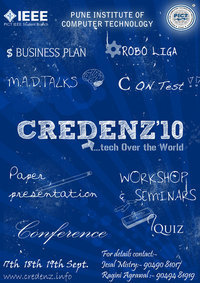Ozran is a small web development company in Kondhwa, Pune. This European company founded by Andor Admiraal and Rajesh Shet has some very unique policies and a different outlook from most other IT firms. One of their unique initiatives is that they offer completely free web courses to IT, Arts and Maths freshers. They even have a couple of free women-centric courses on offer.
We chatted with Andor one of the founders of the company to find out more about this unique firm and the rationale behind the way they are.
Though they are small they are an end-to-end company. They come up with web concepts, design, development, marketing, they maintain and work with copy as well. Not everyone can handle this, so recruitment becomes something of a challenge for them. ‘I can teach someone ColdFusion, jQuery or CSS. But I cannot teach someone to think critically, be curious, defend their own ideas, take responsibility or to find pride even in the mistakes they make. But in our company, we consider these key skills.’ says Andor.
So while hiring they look for the right personality, one who will fit into their organization rather than just for a list of technical qualifications. And they find that the best way to do this is during a short course. Andor also believes that this method of hiring fits well into the learning culture at Ozran. All the employees are required to study for an hour every day. A number of books, videos, online courses are made available to employees. They want their people to grow continually. ‘Our cleaning girl studies English on the computer once she is done with her work – it’s just who we are as a company. And why go through hours of tedious job interviews, when we can do something infinitely more fun and useful?’ Says Andor.
Coming from Europe Andor found many cultural differences in India. The differences between the sexes made up a large part of this. ‘Many women in India do not work after getting married or having children. This means the end of their careers even before they are 30.’ Andor felt that this was a pure waste of talent. So through women-only courses they hope to tap into this group of dedicated professionals that would otherwise remain on the outside. ‘We are looking at offering part time jobs to women who have family responsibilities. The women-only HTML5/CSS3 course is therefore a prelude to this flexible hours coding team.’ Says Andor.
The training programs are a week long and this gives them plenty of time to find out who’s asking the smart questions, who struggles but is trying really hard, and who is completely lost or cannot really communicate. They feel that this sort of information is valuable when making decisions on whom to hire or offer a traineeship to. Some of the free courses they offer are web page coding, web design, coldfusion and web analytics. ‘But the participants benefit alot as well; six nights is just enough time to learn one aspect of a technology really well. The exams are tough, so an Ozran Academy-certificate on the CV really means something.’ Says Andor. They hope to build a reputation this way especially if participants spread the word around after attending the course. ‘Slowly but surely, Pune will get to know that we’re here and that we’re a pretty cool company to work for. That should help us attract the best people, which in turn makes us grow as a company.’
Other ways in which Ozran tries to differ from regular companies:
- All employees are expected to study for an hour every day.
- Unlike other small companies, they don’t work in any technology that they happen to get work in, but limit themselves to very few technologies and believe in becoming experts in those areas.
- They believe in giving a lot more responsibility even to their junior most staff. ‘Making mistakes means you are not afraid to try new things. A company that does not allow its people to make mistakes does not allow them to grow.’ remarks Andor candidly.
‘Pune is such a dynamic place, with so many young people bursting with ideas and ambitions. We as Ozran hope to contribute to people discovering some of these things for themselves. That starts with our free courses in web development, and of course I hope a lot of your readers will sign up!’ says Andor
This year’s free courses are in:
- Webpage Coding (HTML5/CSS3 – this is a women only course)
- ColdFusion
- Web Design
- Web Analytics
For more information about Ozran’s free web courses, see the Ozran Academy website

